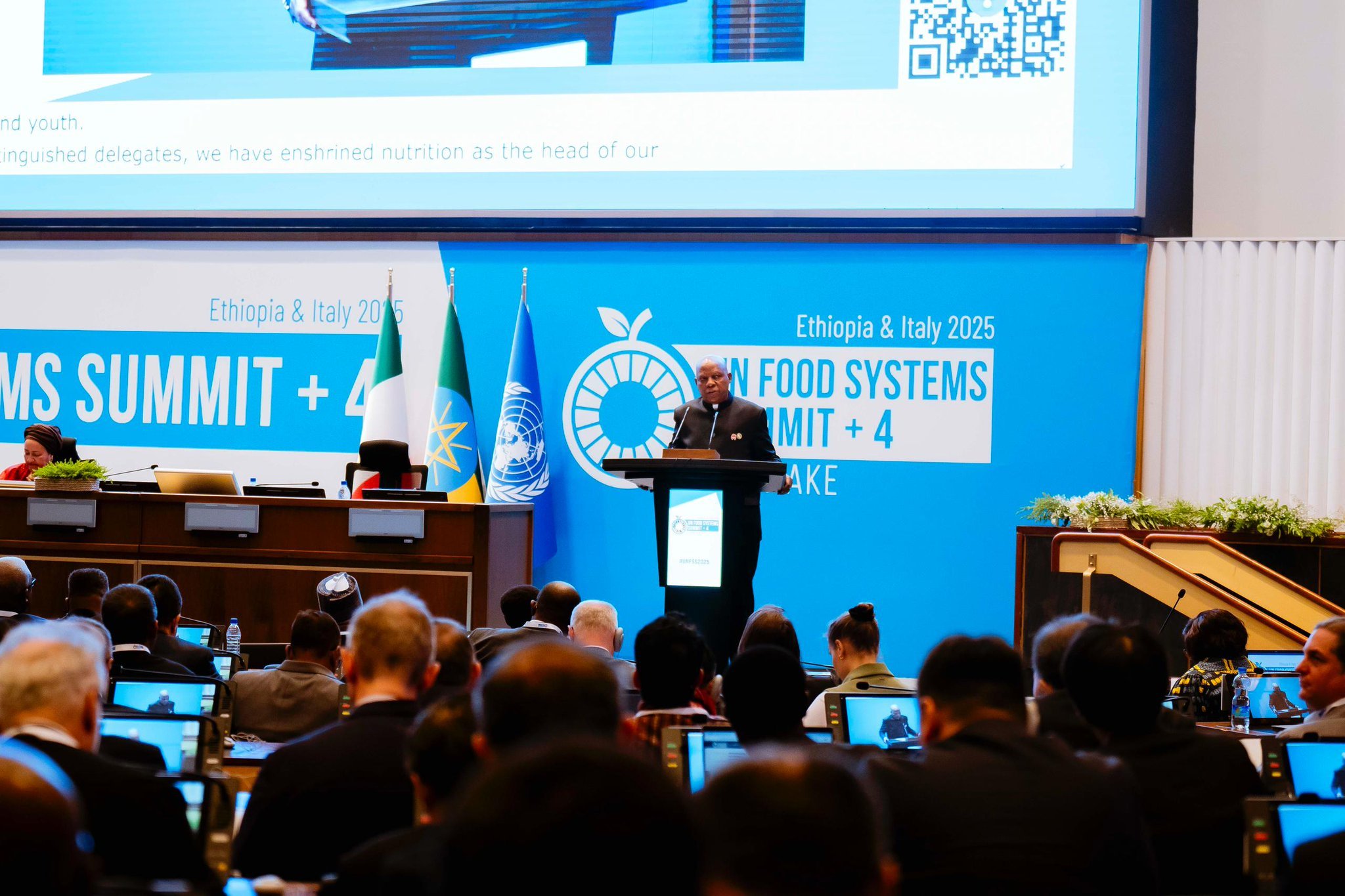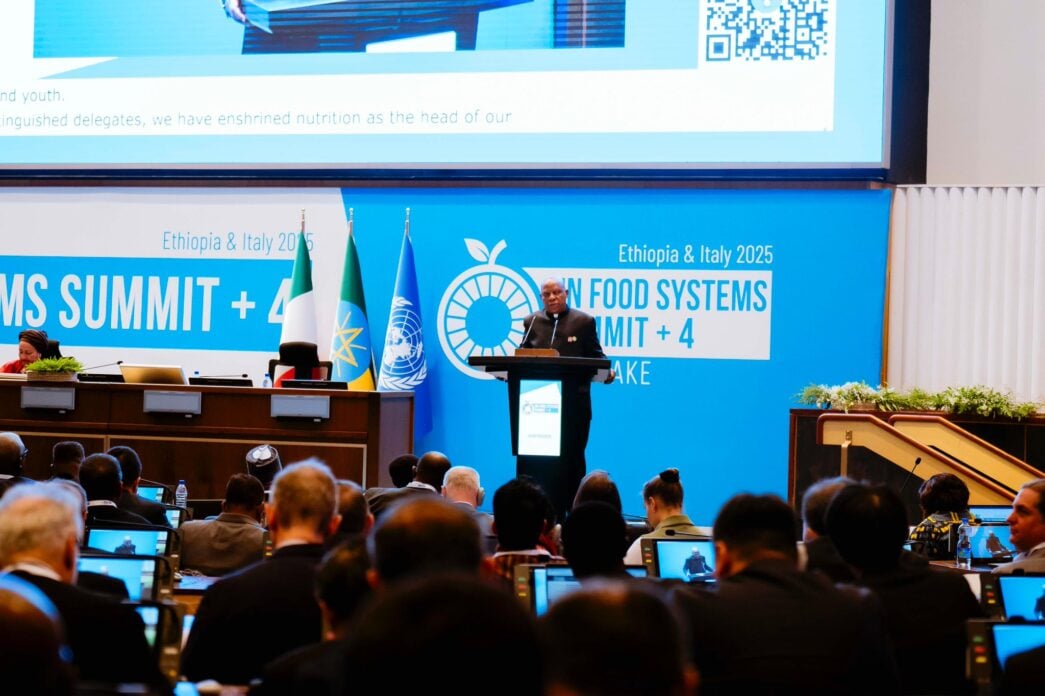Vice-President Kashim Shettima says the federal government is deploying artificial intelligence (AI) and other modern technologies to strengthen the country’s food systems.
Shettima spoke on Monday at the opening session of the United Nations Food Systems Summit Stocktake (UNFSS+4) in Addis Ababa, Ethiopia.
The summit builds on the 2021 UN Food systems summit and the first stocktake in 2023, with a focus on accelerating sustainable, inclusive and resilient food systems.
The vice-president noted that food and nutrition are now central to the national development plan 2021-2025 and the Nigeria agenda 2050.
Advertisement
“Food insecurity is no longer a shadow lurking in distant lands. It is a shared affliction,” he said.
“The Fourth Industrial Revolution has not only disrupted the old order but gifted us instruments that were once confined to imagination. Artificial intelligence, geospatial analytics and satellite-driven climate intelligence are now part of our agricultural vocabulary.
“We are deploying these tools to monitor production, enhance transparency, connect producers to markets and reduce waste across the value chain.”
Advertisement
Shettima said Nigeria is partnering with the African Development Bank and the International Fund for Agricultural Development (IFAD) to invest in special agro-industrial processing zones.
He noted that the federal government is scaling up investments in school feeding programmes, nutrition-sensitive agriculture and community-driven nutrition education.
According to him, the Nutrition 774 initiative places local governments at the centre of nutrition delivery.
“These hubs are engines of transformation. They create jobs, attract private capital and link rural producers to national and global markets,” he said.
Advertisement
“We are making the Sustainable Development Goals local. We are transforming pledges into meals.”
Shettima also said that the federal executive council (FEC) recently approved the national multi-sectoral plan of action for food and nutrition and directed the establishment of nutrition departments in relevant ministries.
He added that Nigeria is ready to “listen, learn and lead” where leadership is needed.
“The scars of conflict, the uncertainties of climate, the distortions of markets and the missteps in policy are all calling us to renew our commitment to multilateralism,” he said.
Advertisement
“The road ahead is long and lined with complexities. But we are not paralysed by fear. The world we desire will not emerge from declarations alone. It must be built with patience and persistence, bold ideas and careful planning, shared resolve and shared responsibility.”
Also speaking, Abiy Ahmed, the Ethiopian prime minister, said Africa needs predictable concessional finance to invest in agriculture, rural transformation and infrastructure.
Advertisement
He added that climate finance must align with food systems because “hunger and environmental degradation are deeply linked”.
António Guterres, the UN secretary-general, in a recorded message, said food systems are about more than food, adding that global hunger is rising as climate change destroys harvests and supply chains.
Advertisement
Other speakers at the summit include Italian Prime Minister Giorgia Meloni and Kenyan President William Ruto.
Advertisement












